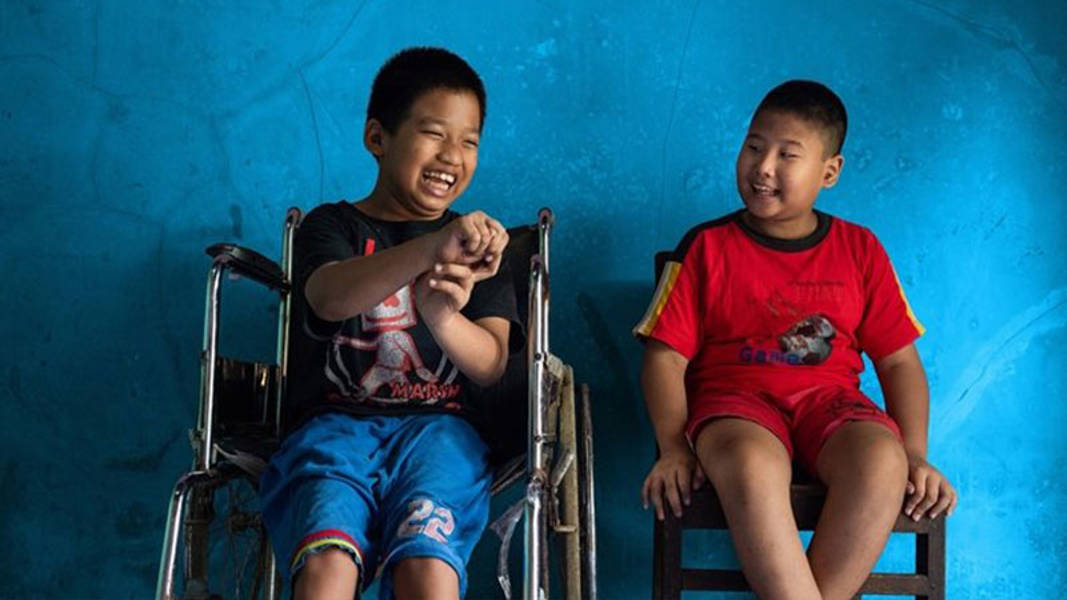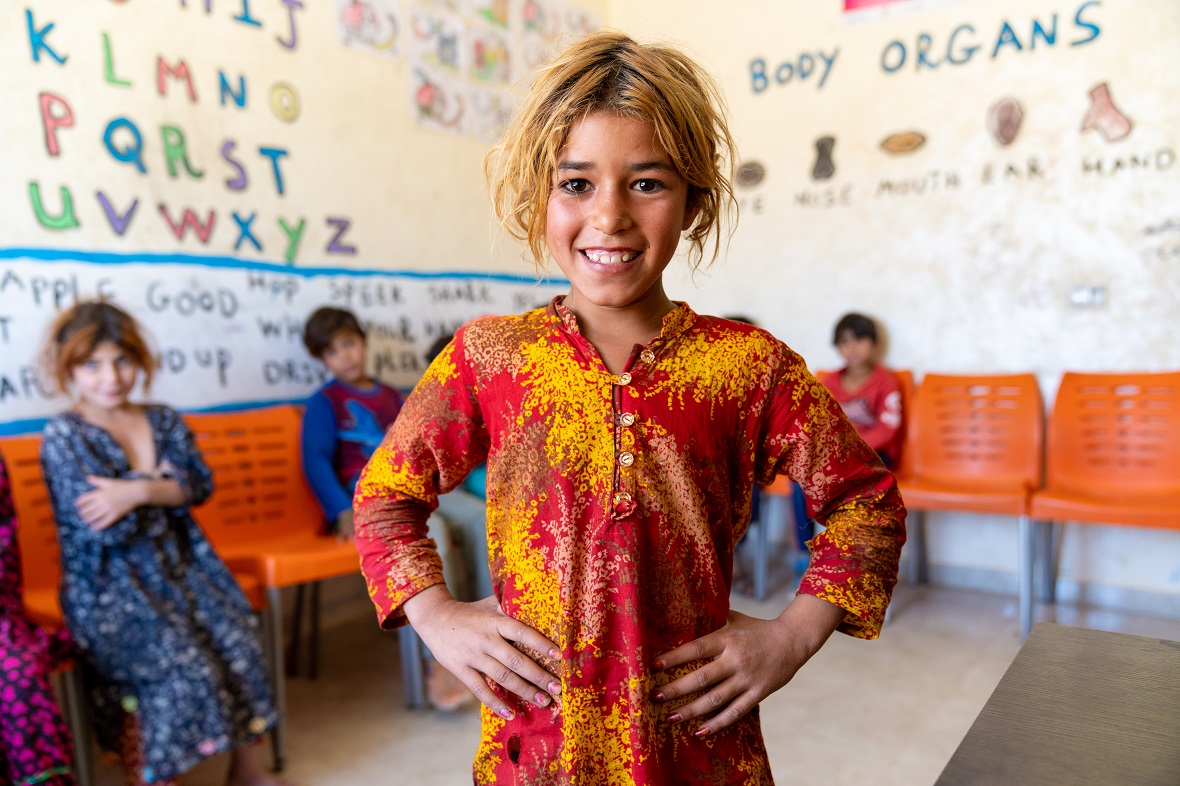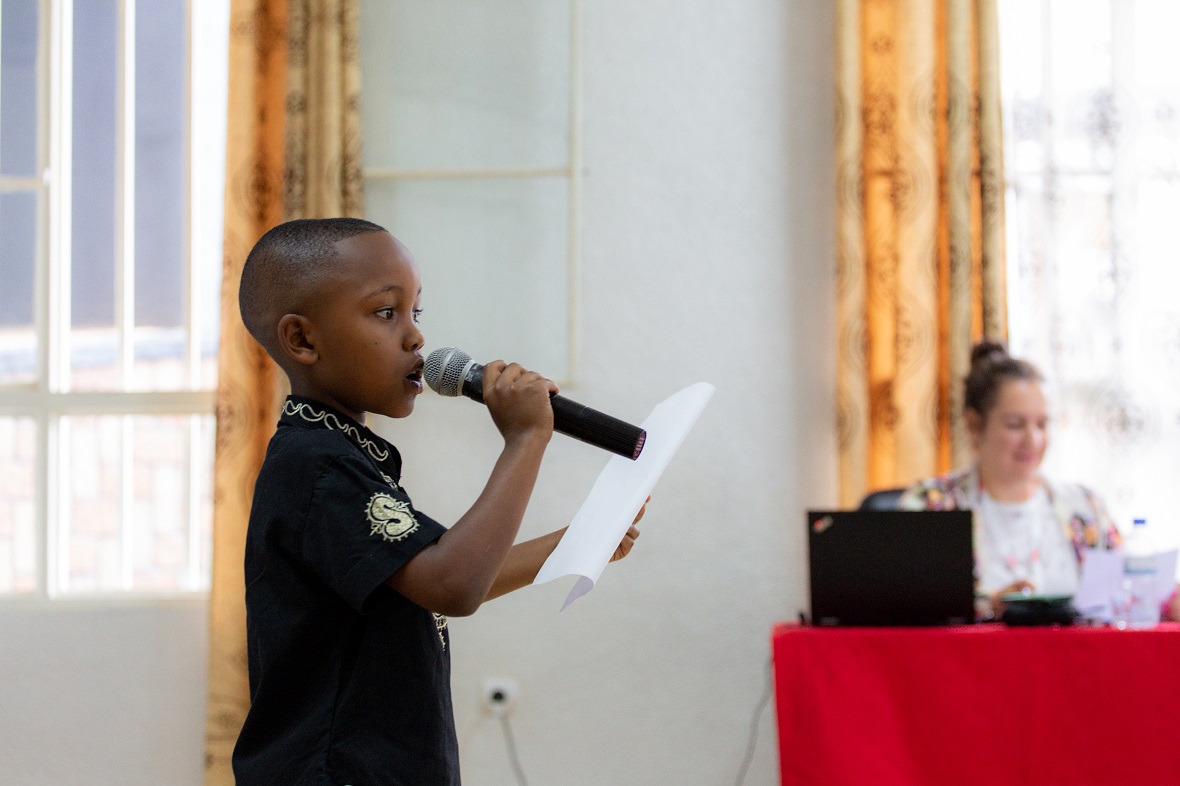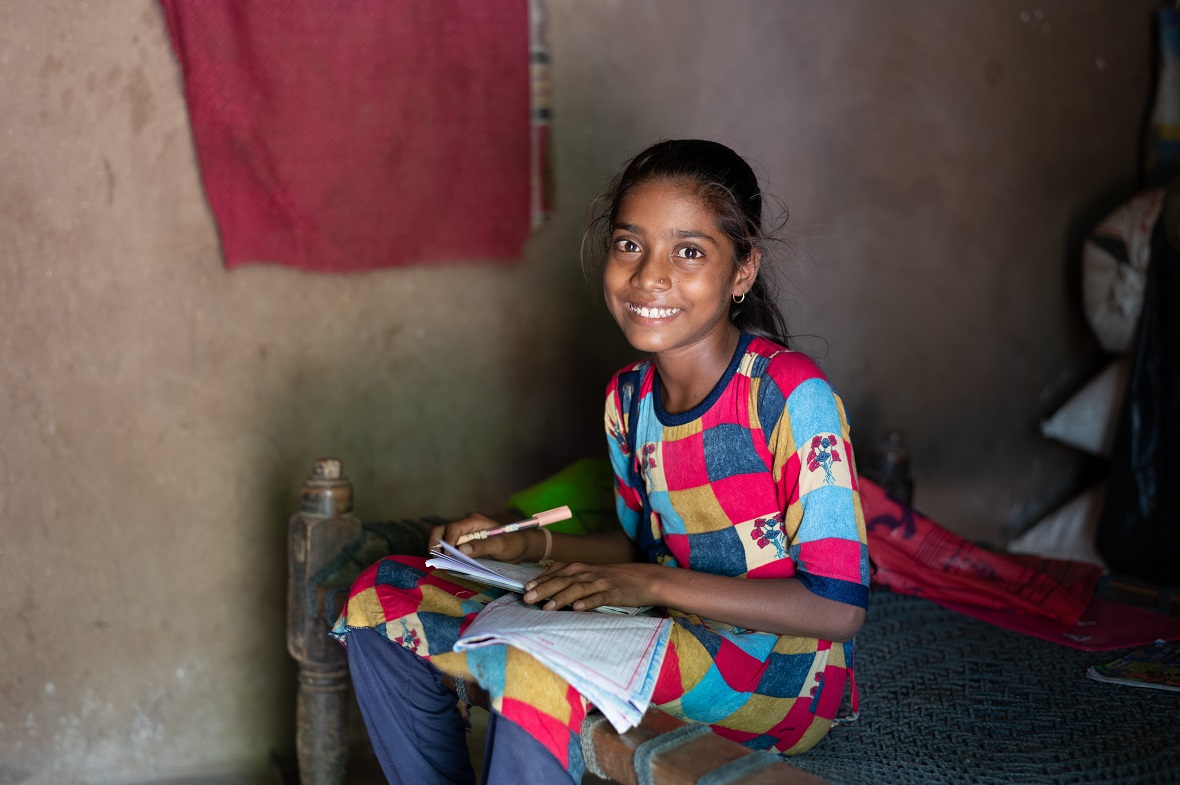
Honoring World Children’s Day and organizations working for the dignity of young people
The Stavros Niarchos Foundation (SNF) sees making sure that young people—from kids learning to walk to young adults learning a first professional skill—have access to education, to care, and to opportunity as one of the most valuable things we collectively can do to build toward a better future.
On this World Children’s Day, we share snapshots of a few of the many incredible grantee partners working to secure the dignity of children and young people that SNF is privileged to support.
Samu Social Sénégal: A child-centered approach to helping children living in the streets in Senegal
“Samu Social Senegal takes a child-centered approach in its interventions, aiming to restore the dignity of children in physical and social distress and those who no longer have the strength or means to ask for help,” writes SNF Program Officer Ange Munyakazi.
“The intervention starts with mobile assistance teams on the street eight times per week (five nights and three days). They provide medical, psychosocial, and nutritional assistance to the children living on the streets. Mobile teams also respond to emergencies 24 hours a day, anywhere in the Dakar area. This work is vitally important, as street children, due to their lived experiences, have lost trust in adults and institutions. They work to mitigate this by going to meet them where they are. This is a way, on the one hand, to provide medical and social support, and on the other, to help the children to get to know the organization and, in time, to accept additional assistance so they can leave the streets.”
Bambini Senza Sbarre: Humanizing space for children to connect with incarcerated parents in Italy
Bambini Senza Sbarre believes the relationship between a parent and a child is a fundamental one that should not be severed by the incarceration of the parent. Maintaining this bond by entering prison—a hyper-regulated environment designed for control—can be jarring for young children, and Bambini Senza Sbarre works to humanize the process for children in concrete ways. Through the organization’s Yellow Room program in Italian prisons, children have a kid-friendly space in which to await a visit and draw their feelings while their caregivers receives guidance on how to talk to children about a parent’s incarceration. The Yellow Room program adapted to the pandemic with a “Yellow Telephone” program, providing specialist psychological and emotional support to families of which a member is incarcerated.
Today, Bambini Senza Sbarre, whose work has helped inspire Europe-wide guidelines, announced the launch of a new project which includes the opening of new Yellow Spaces, alternatives to detention for mothers, school programs aimed at reducing stigma, training for correctional officers, and more.
See the organization’s work in action
Amimoni: Early intervention for children with limited vision
For children with limited or no vision, relatively small interventions can lead to significant improvements in overall quality of life. That’s the premise of Greek nonprofit Amimoni’s Early Intervention Program, which seeks to help children—and their families—unlock their talents and abilities.
The program is designed for infants and children up to six years old with blindness or low vision, who may also be experiencing motor and neurological difficulties or developmental disabilities. The Early Intervention team, which consists of a child psychiatrist, psychologists, a social worker, occupational therapists, special educators, and a mobility trainer, organizes weekly sessions at each participant’s home to work with the children and their parents.
Special Olympics: Unified play for a more inclusive society
Schools are where kids learn academic skills, but also where they learn a sense of belonging and how to act as members of a community.
The “Play Unified. Learn Unified” project, the result of a major collaboration between Special Olympics and SNF, creates opportunities for inclusive sport and youth leadership development for students with and without intellectual disabilities. Unified Schools in the program in countries from Brazil, to Egypt, to India, to Indonesia, to Serbia, to Tanzania, and beyond partner in the program.
Read about how Special Olympics is helping teachers in Chile promote integration during a time of remote learning and how an intercontinental talent show brought together students from Mexico and Morocco.
UNICEF: Primed for global emergency response
When the COVID-19 pandemic hit, UNICEF, the United Nations agency focused on aiding children worldwide, sprang into action to respond directly to the new public health crisis while also continuing ongoing efforts in a range of critical areas, from nutrition, to education, to water and hygiene infrastructure.
To support UNICEF’s urgent work around the globe, SNF made a flexible $3 million grant toward the organization’s global COVID-19 response initiatives in the key areas of educational access, psychological services, and supporting those on the front lines with protective equipment and basic emergency supplies. The grant was part of the Foundation’s $100 million global COVID-19 relief initiative.
UNICEF’s unparalleled network, including the world’s largest emergency supply warehouse, makes it uniquely suited to getting vital resources out quickly to children and families around the world.


